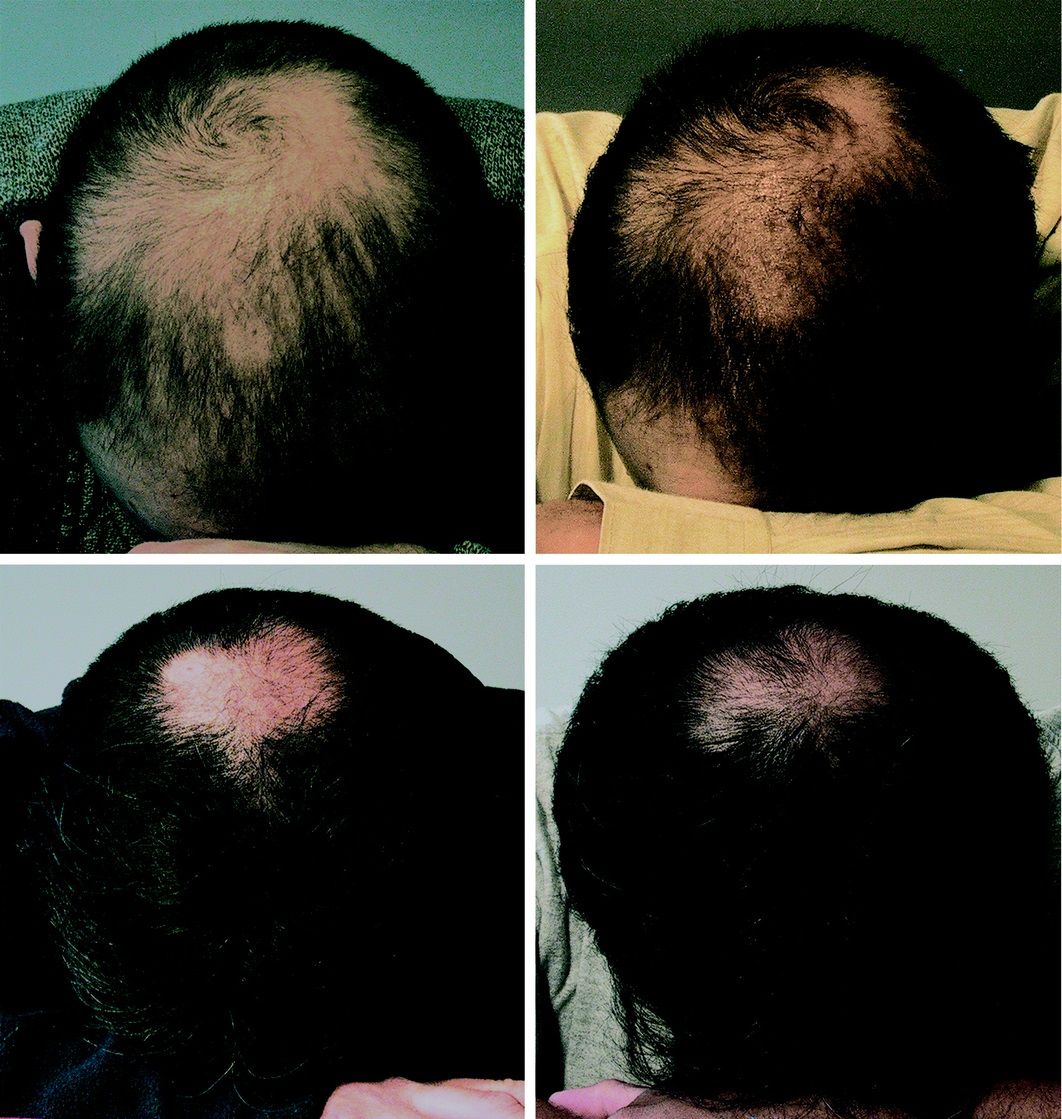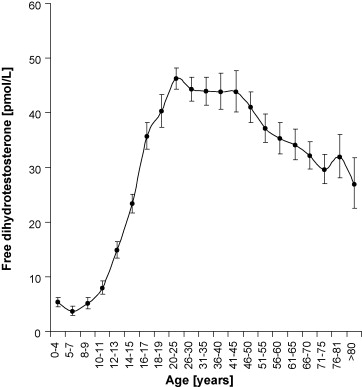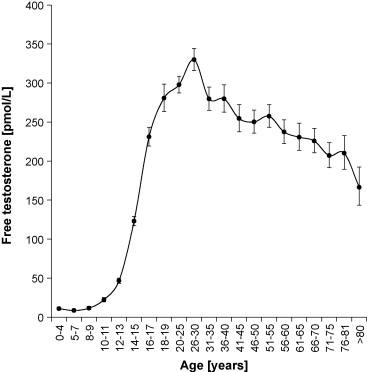what is the cure to hairloss / male pattern baldness?
-
@izkrov Blood flow / scalp tension theory was disproven a long time ago when they transplanted balding scalp areas onto someone’s arm and the hair kept miniaturizing. I don’t think that’s specifically what you’re referencing but that seems to be adjacent.
I don’t think DHT is a red herring personally but I respect your in depth response. I’ll look into everything you said.
-
I'm not sure of the mechanism of putting balding scalp areas onto someone's arm and the hair not regrowing. I would think the new environment would be less inflammatory for hair to grow, but it looks like it's not enough. But here's an example of relieving tension in the scalp and it regrowing hair.
"These muscle groups—the frontalis, occipitalis, and periauricular muscles and to a minor degree the temporalis—can create a “tight” scalp when chronically active. Because the blood supply to the scalp enters through the periphery, a reduction in blood flow would be most apparent at the distal ends of the vessels, specifically, the vertex and frontal peaks. Areas of the scalp with sparse hair growth have been shown to be relatively hypoxic, have slow capillary refill, and to have high levels of dihydrotestosterone.4
Conceptually, Botox “loosens” the scalp, reducing pressure on the perforating vasculature, thereby increasing blood flow and oxygen concentration."

-
I have heard that topical GHK-CU is supposed to work well. Supposedly its also very good on the face. Will probably try over the next few months and report back
-
@guts i have been reading a lot about ghk. Trying to find a reasonably priced source. Will be putting it into a liquid hair dispenser/massager
-
@CatlikeLantern yeah one of those annoying substances that is either extremely overpriced, or seems to be a low quality formulation
-
@guts infiniwell seemed trustworthy but is insanely expensive. Bowtiedbiohacker posted that he buys Mirror Skin’s peptides off of Amazon.
-
@CatlikeLantern in general whenever a "BowTied" user is selling a product I immediately assume its a grift

-
@MaxVerstappen
Male pattern baldness/hair loss and androgenic alopecia are terms used interchangeably, but they not the same thing. The former refers to the way men lose their hair. The latter is the theory that MPB is caused by androgens.I say theory because it's not obviously true. Why are babies (of both sexes) born with "androgenic alopecia?" Clearly, babies have not lost their hair due to "DHT miniaturizing the hair follicle." In fact, it grows back.


If you want to propose some theory as to why hair loss occurs, it needs to answer:
- Why are babies born with "male pattern baldness,"
- Why do men start losing their hair in early adulthood, and
- Why do men continue to lose their hair as they age (while androgens fall off).
Preferably, you should also have answers for why finasteride works, why mothers that lose hair post-partum, and why said mothers regrow their hair.
The "androgenic alopecia" theory is obviously attractive because men have androgens and women . But "cumulative exposure to androgens" is a flimsy just-so for 3, and there is nothing to explain newborn hair loss.
I don't have the answers, but I do have a few observations:
- Hair follicles are different from most organs in that they constantly cycle between phases of growth and differentiation. Understanding the difficulty of this task and the factors involved is critical to solving this puzzle.
- It would be very surprising if the hormones involved in controlling growth vs. differentiation in gestation didn't play a role in growing hair follicles.
- Both newborns and post-partum mothers have a lot of progesterone. Could it be that progesterone is enabling the regrowth of hair? Something must be doing that, or at least preventing the hair loss from becoming permanent.
- Tissue growth is an energy-intensive process. Both pregnenolone and progesterone stabilize energy production.
- Young people have a lot of the basic steroid pregnenolone. Pregnenolone production declines steadily with age.
- During puberty, the sex-differentiating steroidogenic enzymes get turned. The relative levels of pregnenolone go down for both sexes, but women get progesterone whereas men get testosterone.
- Finasteride is very similar to progesterone.
Finasteride:

Progesterone:

It seems to me that women keep their hair because of progesterone, rather than men lose their hair because of androgens.
-
Thank you, this is what I was looking for beyond surface level critique of the DHT theory. I’d still like to see if the person pictured from the study kept their hair “in the long run.” Minoxidil treatment can produce a similar effect (we presume by increasing blood flow / growth factor / opening potassium channels) but it’s not “permanent regrowth. I’ve seen many people regrowth their hair with minoxidil but eventually the rare of AA overcomes the positive effect of minoxidil.
-
This post is deleted! -
@CatlikeLantern
Ordinary brand copper peptide serum seems okay. Cheap and produces tangible results on face, at least in my experience. -
Take a hot bath and use egg white as your shampoo. Let it sit for 15 minutes and then wash it with cold water. Not sure how well it will help regrowth as i've only been doing it for a month but it definitely makes my hair feel a lot thicker for the next couple days after soak. I put a couple drops of Methylene blue in as well.
-
things to avoid:
finasterideWhy antagonise finasteride this much.
it’s basically proven to stop hair loss and there is no such thing as pfs
Even if you’re that worried about serum dht mesotherapy dutasteride nukes scalp dht with ~0 effects on serum dht -
@semio Can you make an update thread in the future when you see a noticeable difference? And if you added anything to your regimen. I would love to see the results.
-
@MaxVerstappen this is my problem with peaters when it comes to hair loss lol,they cope with before and afters that are not MPB and a lot of them are norwooding bad you can alter scalp dht with negligible effects on serum dht by now
-
Travis in 2017 I think wrote a theory that balding/hair growth is under influence of PPARs and prostaglandins. His conclusion was "Balding is nearly impossible without linoleic acid".
The explanation was pretty good, I don't know if depleting linoleic acid would bring back what has already "been lost" though
-
-
@basednigga2006 im in a tech school and blaa blaa blaa school
The amount of people i see that are balding is shoocking! Like a dissease
A dissease that is not gonna fucking get me
I WILL FUCKING STAY BEAUTIFULL -
@Glace said in whats the cure to hairloss?:
@MaxVerstappen
Male pattern baldness/hair loss and androgenic alopecia are terms used interchangeably, but they not the same thing. The former refers to the way men lose their hair. The latter is the theory that MPB is caused by androgens.I say theory because it's not obviously true. Why are babies (of both sexes) born with "androgenic alopecia?" Clearly, babies have not lost their hair due to "DHT miniaturizing the hair follicle." In fact, it grows back.


If you want to propose some theory as to why hair loss occurs, it needs to answer:
- Why are babies born with "male pattern baldness,"
- Why do men start losing their hair in early adulthood, and
- Why do men continue to lose their hair as they age (while androgens fall off).
Preferably, you should also have answers for why finasteride works, why mothers that lose hair post-partum, and why said mothers regrow their hair.
The "androgenic alopecia" theory is obviously attractive because men have androgens and women . But "cumulative exposure to androgens" is a flimsy just-so for 3, and there is nothing to explain newborn hair loss.
I don't have the answers, but I do have a few observations:
- Hair follicles are different from most organs in that they constantly cycle between phases of growth and differentiation. Understanding the difficulty of this task and the factors involved is critical to solving this puzzle.
- It would be very surprising if the hormones involved in controlling growth vs. differentiation in gestation didn't play a role in growing hair follicles.
- Both newborns and post-partum mothers have a lot of progesterone. Could it be that progesterone is enabling the regrowth of hair? Something must be doing that, or at least preventing the hair loss from becoming permanent.
- Tissue growth is an energy-intensive process. Both pregnenolone and progesterone stabilize energy production.
- Young people have a lot of the basic steroid pregnenolone. Pregnenolone production declines steadily with age.
- During puberty, the sex-differentiating steroidogenic enzymes get turned. The relative levels of pregnenolone go down for both sexes, but women get progesterone whereas men get testosterone.
- Finasteride is very similar to progesterone.
Finasteride:

Progesterone:

It seems to me that women keep their hair because of progesterone, rather than men lose their hair because of androgens.
The age and progesterone is explained in this theory
https://www.reddit.com/r/tressless/comments/ezkd0r/my_theory_regarding_a_cause_and_cure_for/?utm_source=embedv2&utm_medium=post_embed&utm_content=post_title -
@zeal may I ask you how much cyprohetadine I should be taking in order to reverse hair loss? Thx